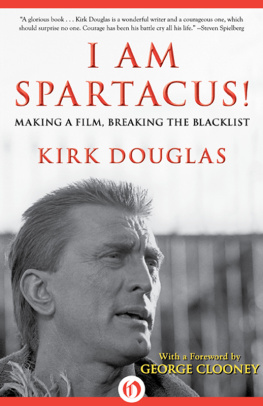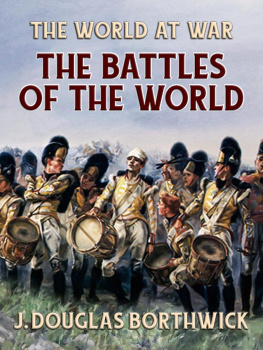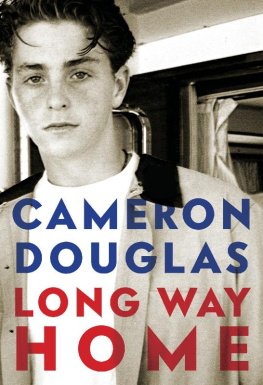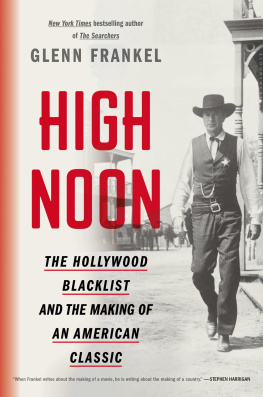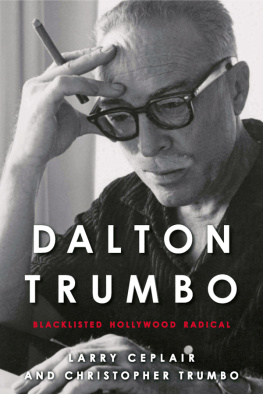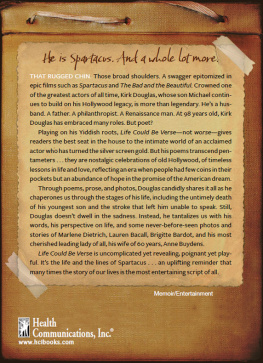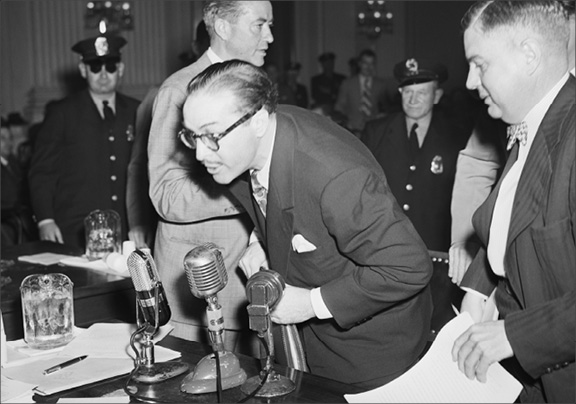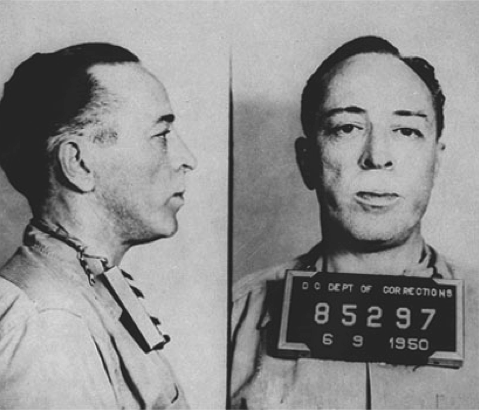Kirk Douglas - I Am Spartacus!: Making a Film, Breaking the Blacklist
Here you can read online Kirk Douglas - I Am Spartacus!: Making a Film, Breaking the Blacklist full text of the book (entire story) in english for free. Download pdf and epub, get meaning, cover and reviews about this ebook. year: 2012, publisher: Open Road E-riginal, genre: Detective and thriller. Description of the work, (preface) as well as reviews are available. Best literature library LitArk.com created for fans of good reading and offers a wide selection of genres:
Romance novel
Science fiction
Adventure
Detective
Science
History
Home and family
Prose
Art
Politics
Computer
Non-fiction
Religion
Business
Children
Humor
Choose a favorite category and find really read worthwhile books. Enjoy immersion in the world of imagination, feel the emotions of the characters or learn something new for yourself, make an fascinating discovery.
- Book:I Am Spartacus!: Making a Film, Breaking the Blacklist
- Author:
- Publisher:Open Road E-riginal
- Genre:
- Year:2012
- Rating:4 / 5
- Favourites:Add to favourites
- Your mark:
I Am Spartacus!: Making a Film, Breaking the Blacklist: summary, description and annotation
We offer to read an annotation, description, summary or preface (depends on what the author of the book "I Am Spartacus!: Making a Film, Breaking the Blacklist" wrote himself). If you haven't found the necessary information about the book — write in the comments, we will try to find it.
One of the worlds most iconic movie stars, Kirk Douglas has distinguished himself as a producer, philanthropist, and author of ten works of fiction and memoir. Now, more than fifty years after the release of his enduring epic Spartacus, Douglas reveals the riveting drama behind the making of the legendary gladiator film. Douglas began producing the movie in the midst of the politically charged era when Hollywoods moguls refused to hire anyone accused of Communist sympathies. In a risky move, Douglas chose Dalton Trumbo, a blacklisted screenwriter, to write Spartacus. Trumbo was one of the Unfriendly Ten, men who had gone to prison rather than testify before the House Un-American Activities Committee about their political affiliations. Douglass source material was already a hot property, as the novel Spartacus was written by Howard Fast while he was in jail for defying HUAC. With the financial future of his young family at stake, Douglas plunged into a tumultuous production both on- and off-screen. As both producer and star of the film, he faced explosive moments with young director Stanley Kubrick, struggles with a leading lady, and negotiations with giant personalities, including Sir Laurence Olivier, Charles Laughton, Peter Ustinov, and Lew Wasserman. Writing from his heart and from his own meticulously researched archives, Kirk Douglas, at ninety-five, looks back at his audacious decisions. He made the most expensive film of its erabut more importantly, his moral courage in giving public credit to Trumbo effectively ended the notorious Hollywood blacklist. A master storyteller, Douglas paints a vivid and often humorous portrait in I Am Spartacus! The book is enhanced by newly discovered period photography of the stars and filmmakers both on and off the set.
Kirk Douglas: author's other books
Who wrote I Am Spartacus!: Making a Film, Breaking the Blacklist? Find out the surname, the name of the author of the book and a list of all author's works by series.

